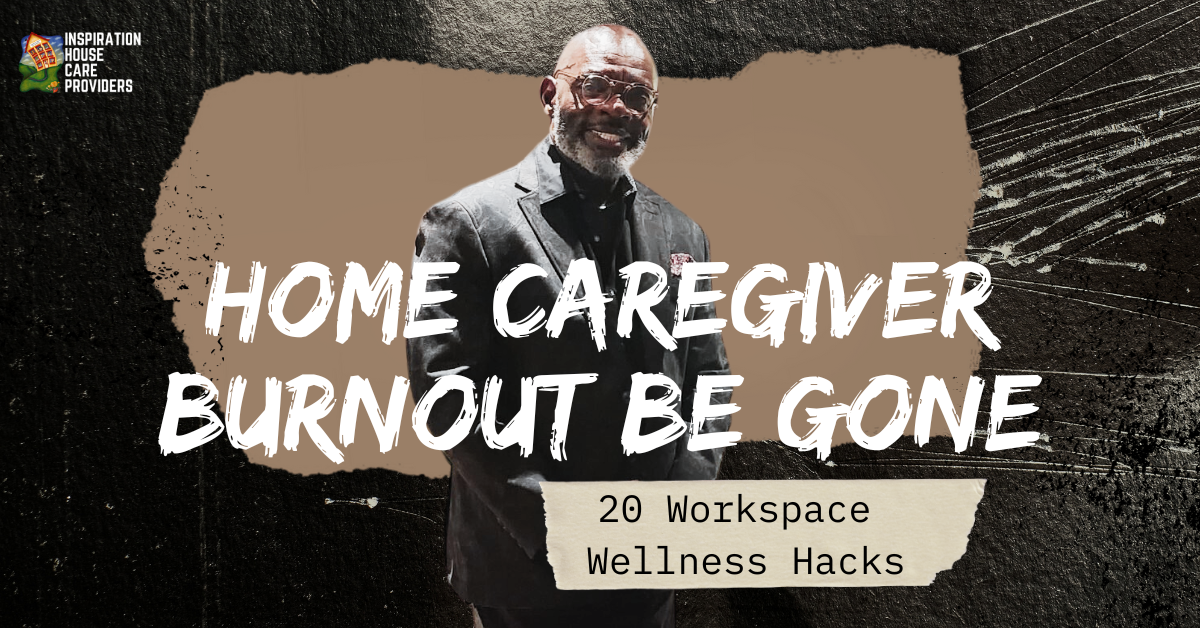The role of a home care caregiver is a profoundly noble one, as these individuals provide essential care and support to those in need, enabling them to maintain their independence and dignity in the comfort of their own homes. However, this deeply rewarding profession comes with its own unique set of challenges, and caregiver fatigue, often referred to as caregiver burnout, is a significant issue within the industry. In this comprehensive blog post, we will delve deeper into the intricacies of caregiver fatigue, its consequences, and provide you with 20 insightful tips to establish a healthier workspace. Along the way, we’ll also introduce you to AAA Care Agency’s blog, where they offer further valuable insights on coping with caregiver burnout.
Understanding Caregiver Fatigue
Caregiver fatigue is a multifaceted phenomenon characterized by physical, emotional, and mental exhaustion that can affect individuals providing care over extended periods. Home care caregivers, in particular, are at a higher risk of experiencing this fatigue due to their demanding work schedules, the challenging situations they often encounter, and the emotional toll of caring for clients who may be facing serious health issues.
The Impact of Caregiver Fatigue
Caregiver fatigue is not just a personal issue; it can have severe consequences for both the caregiver and the quality of care provided to clients. Fatigued caregivers are more susceptible to making mistakes, experiencing heightened levels of stress and anxiety, and even developing health issues themselves. Therefore, it is imperative to address caregiver fatigue to ensure the well-being of both caregivers and their clients.
20 In-Depth Tips for a Healthier Workspace
- Set Boundaries: Establish clear boundaries between your work and personal life. This not only protects your personal time but also allows you to provide better care during your work hours.
- Self-Care Rituals: Prioritize self-care activities such as regular exercise, meditation, or taking time for personal hobbies and interests. These activities help recharge your physical and emotional batteries. For more self-care tips, consider checking out AAA Care Agency’s blog.
- Stay Organized: Keep a detailed schedule to ensure you can manage your tasks effectively. This not only reduces stress but also helps prevent oversights in your caregiving responsibilities.
- Regular Breaks: Schedule short breaks during your shifts to rest and recharge. Taking breaks is crucial for maintaining your mental and emotional well-being. To learn more about effective break strategies, visit AAA Care Agency’s blog.
- Seek Support: Connect with colleagues and caregiver support groups to share experiences, gain valuable insights, and receive emotional support from those who understand the challenges you face. For more on seeking support, check out AAA Care Agency’s blog.
- Stay Informed: Continuously update your caregiving knowledge and skills by staying informed about the latest techniques, technologies, and best practices in the field. You can also explore AAA Care Agency’s blog for relevant updates.
- Healthy Eating: Maintain a balanced diet rich in nutrients to keep your energy levels up and your immune system strong.
- Stay Hydrated: Drink plenty of water throughout the day to stay refreshed and alert.
- Adequate Sleep: Ensure you get enough quality sleep each night to prevent physical and mental exhaustion.
- Delegate Tasks: Don’t hesitate to delegate tasks or ask for help when needed. You don’t have to shoulder all the caregiving responsibilities alone.
- Time Management: Implement effective time management techniques to reduce stress and enhance your efficiency in completing tasks.
- Mindfulness Practice: Cultivate mindfulness through practices such as meditation and deep breathing exercises to manage stress and stay focused on the present moment.
- Utilize Resources: Recognize that you don’t have to do it all on your own. AAA Care Agency suggests caregivers “utilize available resources, such as respite care services, to give yourself a break.”
- Stay Active: Incorporate physical activity into your routine, as it can boost your mood, increase your energy levels, and promote overall well-being.
- Professional Counseling: Consider seeking professional counseling or therapy to help manage stress, process emotions, and develop coping strategies specific to your caregiving experiences.
- Emotional Outlet: Find a healthy outlet for your emotions, whether through journaling, talking to a trusted friend, or participating in support groups.
- Set Realistic Expectations: Avoid overburdening yourself with unrealistic expectations. AAA Care Agency recommends caregivers “set achievable goals for themselves” to maintain a sense of accomplishment.
- Practice Patience: Cultivate patience, both with yourself and your clients. Understand that caregiving can be emotionally challenging, and setbacks are a part of the journey.
- Regular Check-ups: Prioritize your own health by scheduling regular check-ups with your healthcare provider to monitor your physical and mental well-being.
- Open Communication: Maintain open and honest communication with your employer and clients. Transparency can help address any concerns or challenges that may arise, fostering a healthier work environment.
Conclusion
Home care caregivers are unsung heroes who provide invaluable support to those in need. However, the demanding nature of the job can lead to caregiver fatigue, which has consequences for both caregivers and clients. By implementing these 20 in-depth tips, you can establish a healthier workspace and better manage the multifaceted challenges of caregiving. To explore more insights on coping with caregiver burnout and other relevant topics, we recommend visiting AAA Care Agency’s blog. Caregivers’ well-being is paramount, and by following these comprehensive guidelines, we can help ensure they continue to provide compassionate care to those who depend on them while safeguarding their own health and resilience.






Eleanor
July 20, 2024 at 1:59 amThank you for your dedication to supporting and inspiring caregivers. Your blog is a true gift to us all!